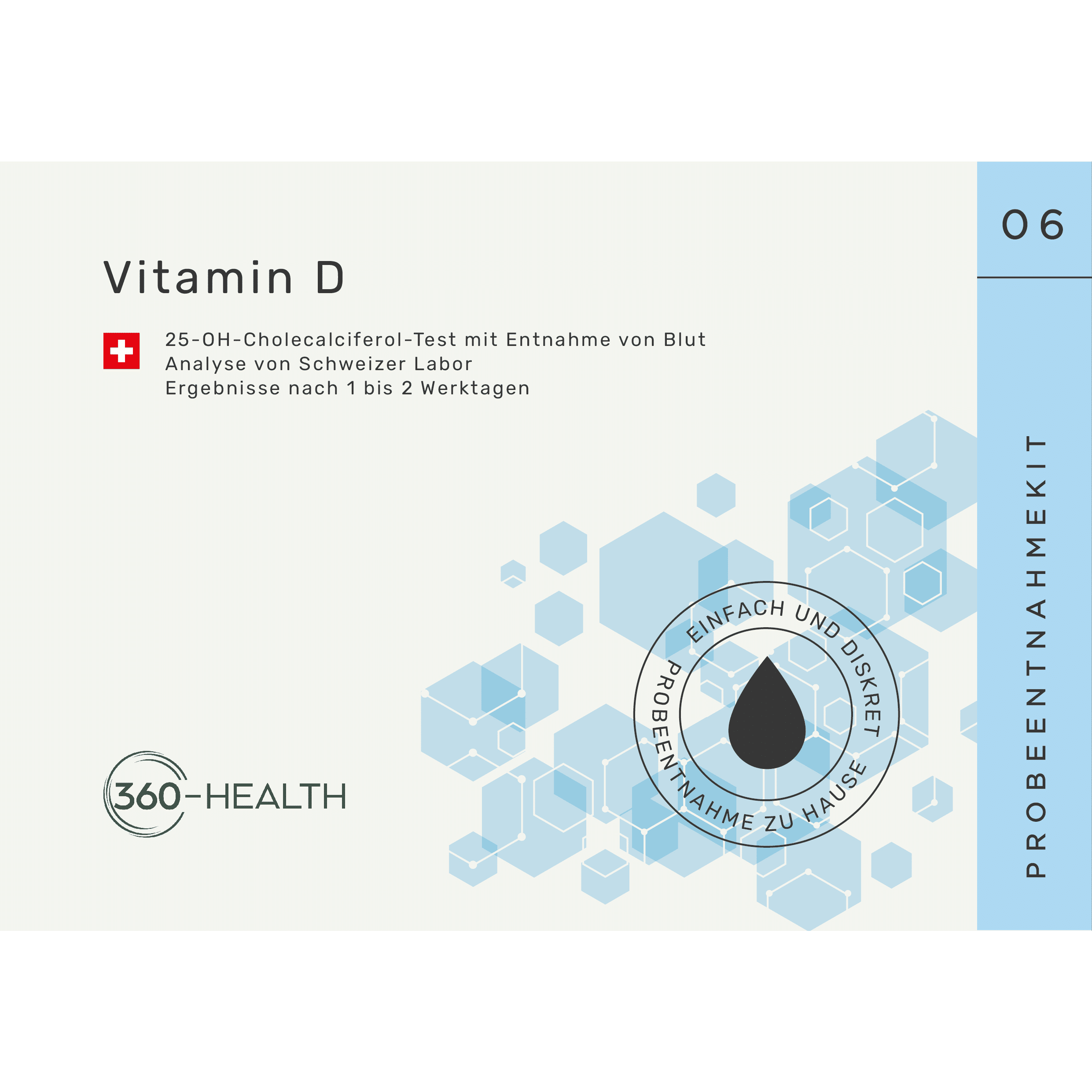Vitamin D, 25-OH-Cholecalciferol Test
CHF 69.30
Analysis done by Swiss laboratory based on immunassay technology. Step by step instructions are provided with the Test kit. Only fingerstick blood needed.
Take your sample conveniently from home with our easy to use home sampling kits and send it with the return envelope to our Swiss partner laboratory.
Receive your results including the official laboratory report by secure Email after 1-2 working days.
The analysis of Vitamin D, 25-OH-Cholecalciferol is primarily used to assess the body’s vitamin D status. This test measures the level of 25-hydroxyvitamin D, which is the major circulating form of vitamin D in the blood. It provides critical information for diagnosing and managing conditions related to vitamin D deficiency or excess.
Uses and Benefits of Vitamin D, 25-OH-Cholecalciferol Analysis
1. Diagnosing Vitamin D Deficiency:
– Helps identify insufficient levels that can lead to bone disorders such as rickets in children or osteomalacia in adults.
– Deficiency is also linked to increased risk of osteoporosis, particularly in older adults.
2. Monitoring Supplementation:
– Evaluates the effectiveness of vitamin D supplementation, ensuring optimal levels are maintained.
– Helps prevent excessive supplementation, which can lead to toxicity.
3. Bone Health Assessment:
– Provides insights into bone metabolism as vitamin D is essential for calcium absorption and bone mineralization.
– Often used alongside calcium and phosphorus tests in diagnosing bone-related disorders.
4. Risk Assessment for Chronic Diseases:
– Low levels of vitamin D have been associated with increased risks of:
– Cardiovascular diseases.
– Type 2 diabetes.
– Autoimmune diseases, such as multiple sclerosis.
– Certain cancers, including colorectal and breast cancer.
5. Immune Function Evaluation:
– Vitamin D plays a key role in modulating the immune system, and its deficiency is linked to higher susceptibility to infections.
6. Fatigue and Muscle Weakness:
– Helps investigate unexplained fatigue, muscle weakness, or general malaise, which could be linked to low vitamin D levels.
7. Metabolic Disorders:
– Evaluates vitamin D status in conditions such as obesity, where fat storage affects vitamin D bioavailability.
8. Chronic Kidney Disease (CKD):
– Monitors vitamin D levels in CKD patients since the kidney converts 25-OH vitamin D into its active form, 1,25-dihydroxyvitamin D. Impairment in this process can lead to metabolic bone disease.
Optimal Levels
– Normal range: Typically 30-50 ng/mL (75-125 nmol/L), though this can vary by laboratory and region.
– Deficiency: Below 20 ng/mL (50 nmol/L).
– Toxicity risk: Above 150 ng/mL (375 nmol/L).
Clinical Applications
– Routine health check-ups in populations at risk (e.g., elderly, pregnant women, people with limited sun exposure).
– Monitoring in conditions that affect vitamin D metabolism (e.g., liver or kidney disease).
– Supporting the management of secondary hyperparathyroidism.
The test is simple and typically requires a blood sample. Results are valuable for guiding treatment and lifestyle recommendations, such as dietary changes, supplementation, or increased sun exposure.
| Weight | 0.2 kg |
|---|


